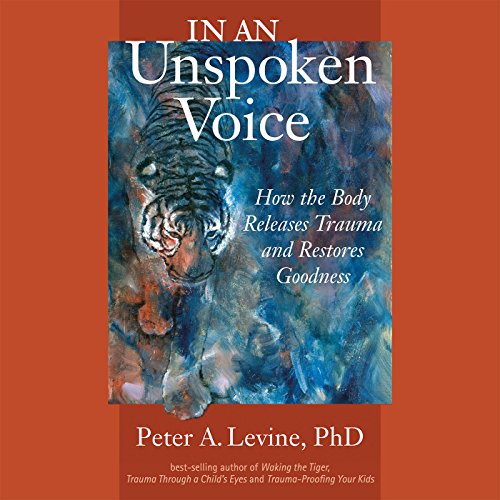
In an Unspoken Voice
How the Body Releases Trauma and Restores Goodness
Failed to add items
Add to basket failed.
Add to wishlist failed.
Remove from wishlist failed.
Adding to library failed
Follow podcast failed
Unfollow podcast failed
Buy Now for £23.99
No valid payment method on file.
We are sorry. We are not allowed to sell this product with the selected payment method
-
Narrated by:
-
Ed Nash
About this listen
Unraveling trauma in the body, brain and mind—a revolution in treatment. Now in 17 languages.
In this culmination of his life’s work, Peter A. Levine draws on his broad experience as a clinician, a student of comparative brain research, a stress scientist and a keen observer of the naturalistic animal world to explain the nature and transformation of trauma in the body, brain and psyche. In an Unspoken Voice is based on the idea that trauma is neither a disease nor a disorder, but rather an injury caused by fright, helplessness and loss that can be healed by engaging our innate capacity to self-regulate high states of arousal and intense emotions. Enriched with a coherent theoretical framework and compelling case examples, the book elegantly blends the latest findings in biology, neuroscience and body-oriented psychotherapy to show that when we bring together animal instinct and reason, we can become more whole human beings.
Critic reviews
It's true
Something went wrong. Please try again in a few minutes.
I especially liked the embodiment & awareness excercises towards the end.
Some parts are repetitive but not unpleasant.
Enjoyable, Emotion stirring & Healing
Something went wrong. Please try again in a few minutes.
Every human needs this.
Something went wrong. Please try again in a few minutes.
Otherwise brilliant.
Brought me a lot of clarity and hope.
Something went wrong. Please try again in a few minutes.
Great book, bad narration
Something went wrong. Please try again in a few minutes.
Such a mine of information...
Something went wrong. Please try again in a few minutes.
A must for anyone living in a human body
Something went wrong. Please try again in a few minutes.
Amazing.
Something went wrong. Please try again in a few minutes.
Great book
Something went wrong. Please try again in a few minutes.
Essential understanding of trauma
Something went wrong. Please try again in a few minutes.


















